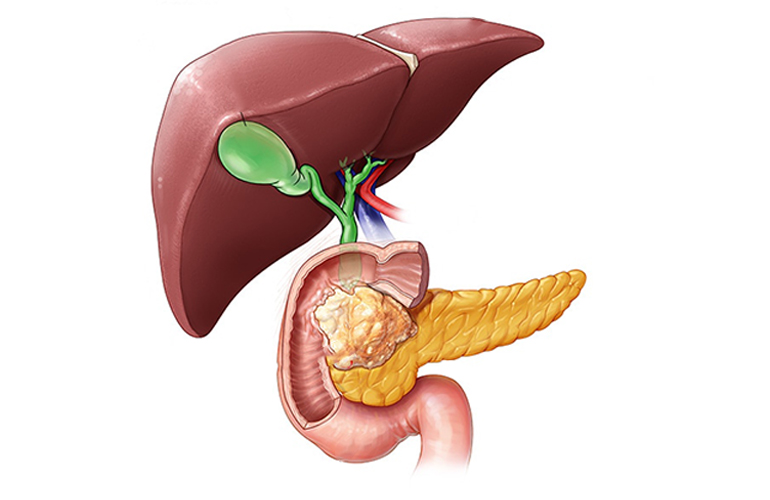
The pancreas is a gland that produces enzymes that digest the food we eat and also produces many hormones important in body functions such as insulin and glucagon. It is an organ that is adjacent to the bile ducts, gall bladder, liver, duodenum, large intestine and stomach. It consists of head, neck, trunk and tail parts.
Malignant masses that tend to proliferate in any part of the pancreas are called pancreatic cancer. Although cancers that occur in this organ can develop in all parts of the organ, they most often occur in the head region. The most common type of pancreatic cancer is adenocarcinoma.
In addition, endocrine tumors originating from hormone-producing cells in the pancreas are frequently encountered tumors. Since adenocarcinoma originates from aggressive cells, it can progress rapidly and metastasize to surrounding tissues.
What are the symptoms of pancreatic cancer?
Pancreatic cancer can progress insidiously without any symptoms in its initial stages. However, in the following periods, symptoms such as weight loss, abdominal pain, jaundice, loss of appetite, nausea-vomiting, weakness, fatigue, diarrhea, indigestion, back pain, glazing paste-colored stools, pallor, sudden onset diabetes and no family history may occur. . Rapid weight loss is seen in patients as a result of malnutrition along with bloating, indigestion and loss of appetite. One of the earliest and most common symptoms is jaundice.
Initially, jaundice appears in the eyes, then yellowing of the skin, darkening of the urine color and turning into 'tea-colored urine', and finally results in an abnormal lightening of the stool color, which is defined as 'glassmaker's paste'. The cause of jaundice is the inhibition of the excretion of bilirubin produced by the liver to the duodenum as a result of obstruction of the biliary tract by pancreatic cancer.
While the pain is a mild discomfort, which is defined as vague abdominal pain, it takes the form of abdominal pain in the back in the future. It is often associated with symptoms of bloating and indigestion.
What are the causes of pancreatic cancer?
Although the cause of the disease is unknown, it is more common in smokers and obese individuals. In almost 30% of patients, the cause of pancreatic cancer is smoking. Pancreatic cancer associated with adult diabetes is controversial. Having a family history of cancer is also among the causes of pancreatic cancer. The disease is more common in men than women, and the risk of developing this disease increases with age. The average age at catching pancreatic cancer worldwide is 63 in men and 67 in women.
Early diagnosis and treatment of pancreatic cancer is very important for the course of the disease. Since the disease tends to progress rapidly and aggressively, when pancreatic cancer is suspected, it should be diagnosed quickly with further investigations and surgery should be performed without delay in patients suitable for surgery. While Whipple surgery is performed in pancreatic head and neck cancers, distal pancreatectomy surgery is usually performed for tumors in the trunk and tail.

